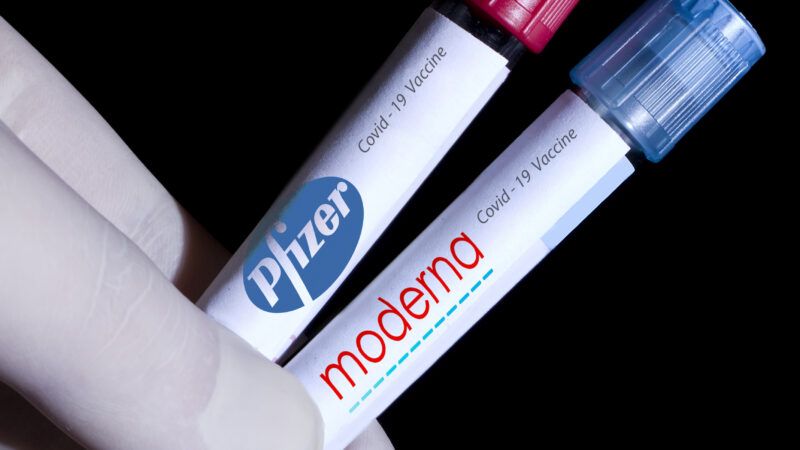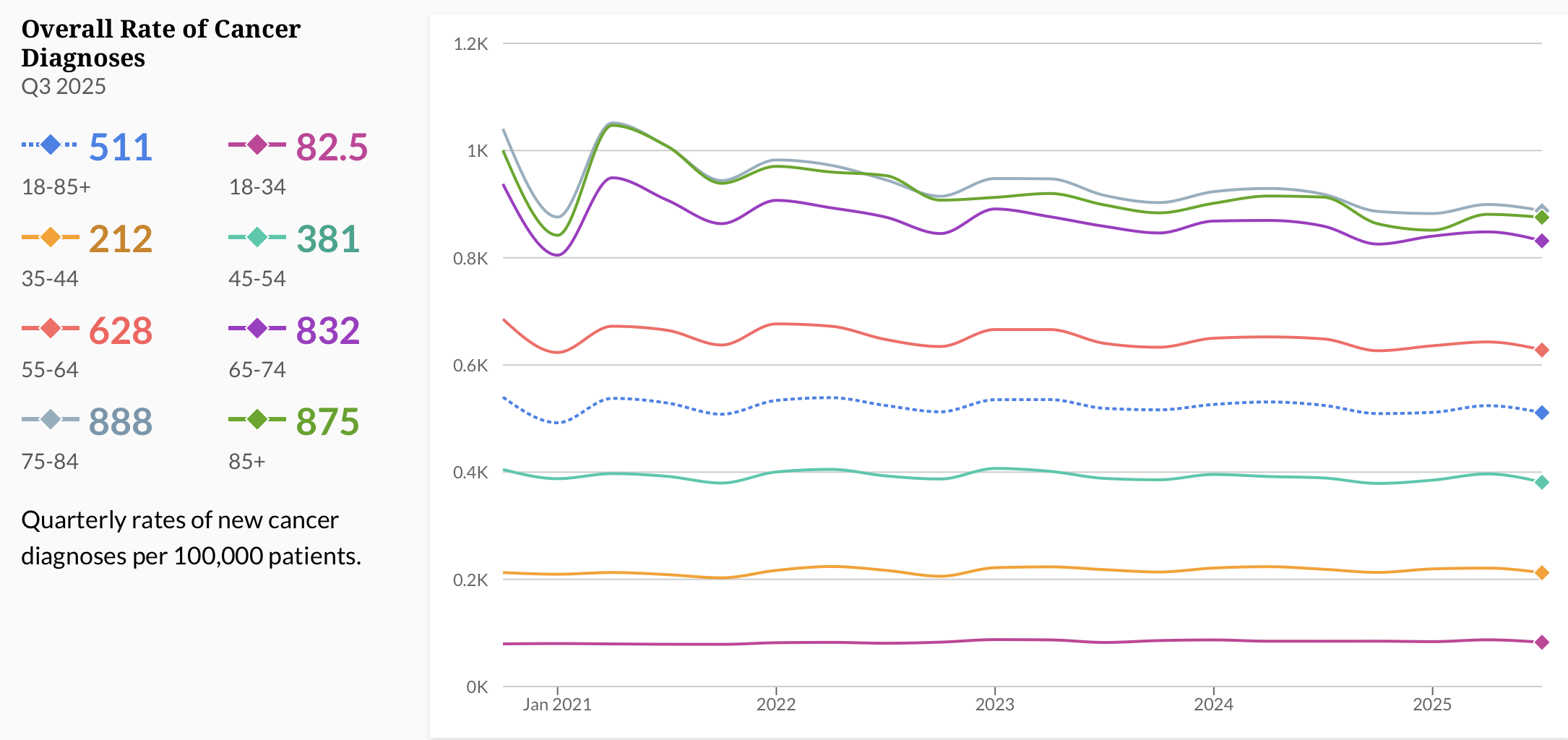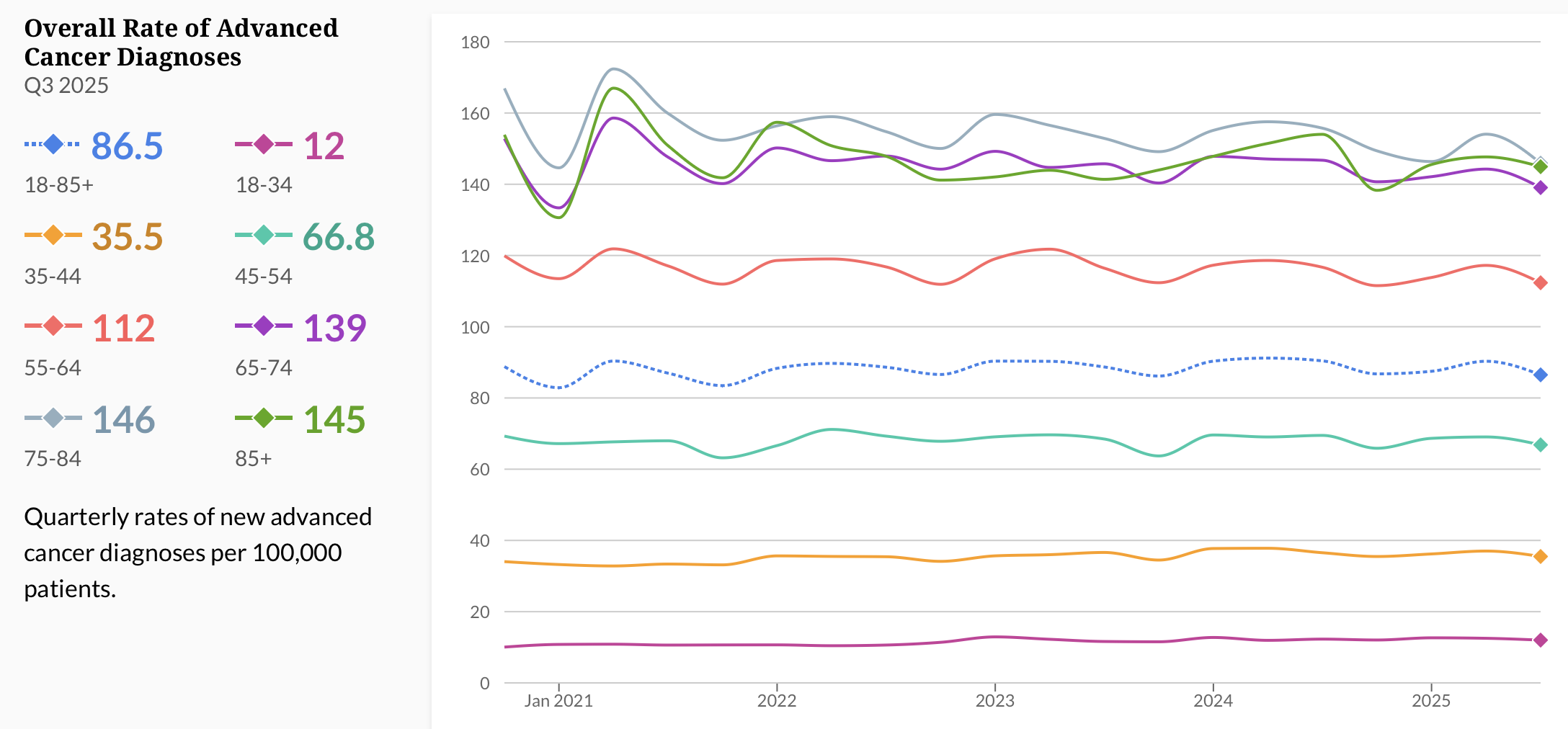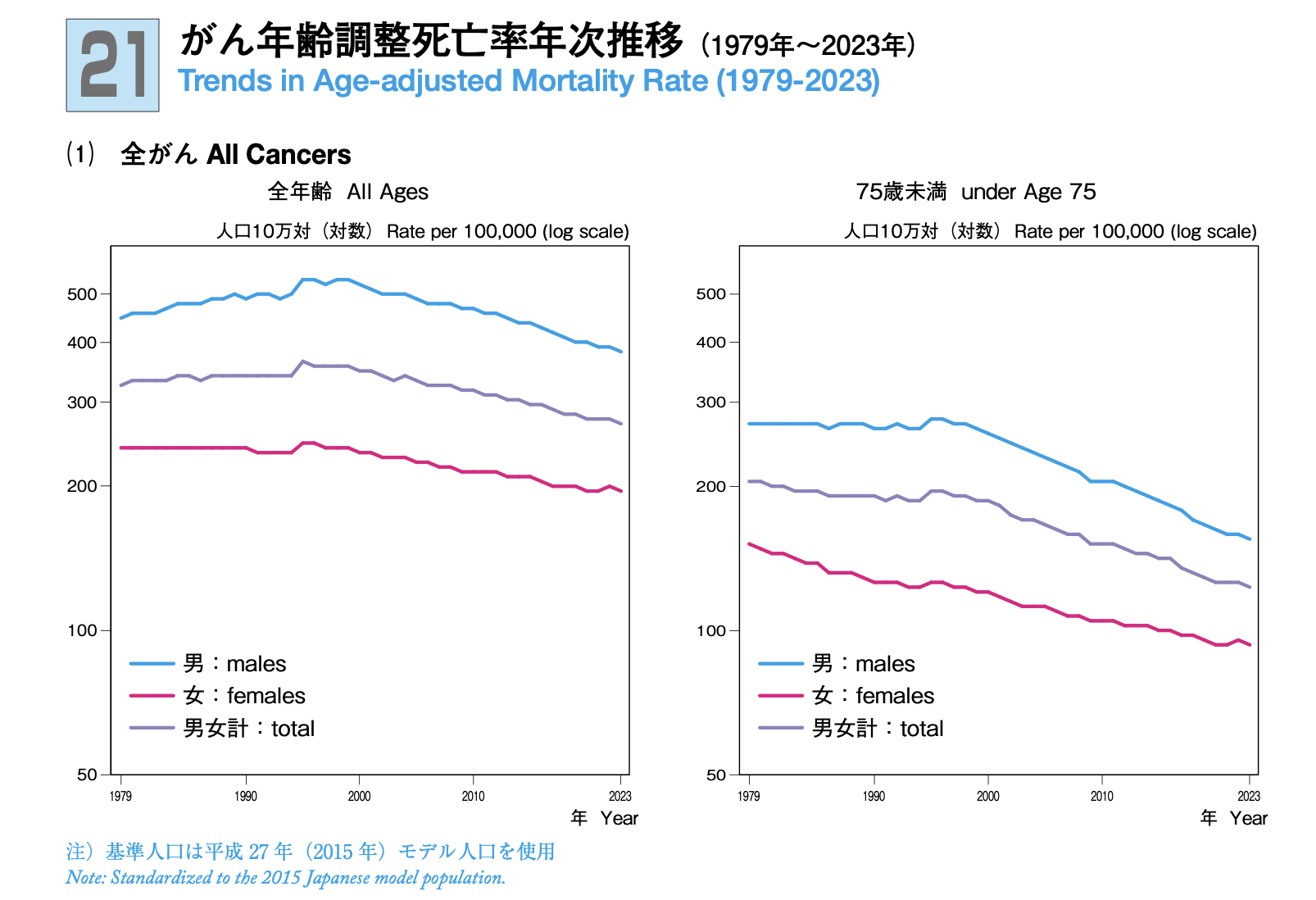COVID Shots Are Not Causing a 'Turbo Cancer' Epidemic
Instead, mRNA COVID vaccines may turbo-charge our bodies' immune systems to fight cancers.

A claque of online anti-vaccine influencers and dissentient researchers are claiming that COVID-19 vaccines are causing an epidemic of aggressive, fast-spreading cancers. The theory, dubbed "turbo cancer," has gained traction despite a lack of credible evidence.
One of the more prominent promoters of this claim is British nurse educator and prolific YouTuber John Campbell. In a recent YouTube talk, Campbell claims, "There has been for some time now, from talking with various experts, about the increased risk of cancers, probably all types of cancer, or many types of cancers, after COVID vaccines." In the video, Campbell cites a recent Italian study as evidence for his assertions.
Another study, titled "COVID-19 mRNA-Induced 'Turbo Cancers'," published in the recently launched Journal of Independent Medicine, is coauthored by physician Paul Marik and his pseudonymous collaborator Justus Hope, who assert that "the incidence of cancers has increased exponentially worldwide since the universal COVID-19 vaccination program began at the end of 2020."
British oncologist Angus Dalgleish has also been a particularly prominent turbo-cancer proponent. He claims that the vaccines "were horrible gene therapies that could actually integrate into your genome." Consequently, he adds, "we're seeing this horrendous rise in turbo cancers."
Similarly, in a speech to the Reform U.K. Conference in September, U.K. cardiologist and adviser to Health and Human Services Secretary Robert F. Kennedy Jr., Aseem Malhotra, speculated that the cancer diagnoses in the British royal family are related to COVID-19 vaccines.
All of this is false. The "evidence" cited by turbo-cancer promoters is bogus. Besides the Italian study referenced by Campbell, turbo-cancer proponents point to questionable epidemiological studies in South Korea and Japan as evidence. (The Japanese study was published in the journal Cureus, which was delisted in October from the Web of Science index because of the low quality of many of its articles.)
U.S. Cancer Trends Post-COVID Vaccinations
Before analyzing those studies, let's just consider what's happening in the United States. Since 2021, around 82 percent of Americans have received at least one COVID-19 shot (mostly mRNA vaccines). Is there any evidence for an "exponential" turbo-cancer epidemic in the United States? Not at all. In fact, since the vaccine rollout, the electronic health records analysis firm Epic Research reports new cancer diagnoses in the U.S. are flat or slightly declining for most age groups.


What about the recent spate of claims that there has been an alarming increase in cancer rates among Americans under age 50? A November article in the journal JAMA Internal Medicine finds that the increase is "more apparent than real." The article notes that the fact that mortality rates remain basically flat suggests that "much of the increase appears to reflect increased diagnostic scrutiny and overdiagnosis." Basically, physicians are getting better at detecting cancers, many of which would never have produced illness.
In addition, a September 2024 study in Cancers by Pennsylvania State University researchers tracked cancer incidence rates among Americans aged 15 to 39 between 2015 and 2021. They identified no increase in cancer incidence among younger Americans. "Age-adjusted overall cancer incidence and mortality rates were stable during this study period," they report.
Bogus Turbo-Cancer Studies
So what about the Italian study? That preliminary study, which followed the health outcomes of nearly 300,000 residents for 30 months in one Italian province, did report that people who had received at least one dose of COVID-19 vaccines had "a slightly higher likelihood of hospitalization for cancer" compared with the unvaccinated. The researchers themselves, however, noted that they could not take into account various epidemiological confounders, especially the "healthy vaccinee bias." Since people who get vaccinated are generally more likely than the unvaccinated to seek healthcare, they could also be more likely to receive a cancer diagnosis. In addition, the vaccines were prioritized for people over age 70 who are inherently at higher risk of developing cancer.
Oddly, the reported cancer hospitalizations increased only between three and six months after receiving at least one injection. However, 12 months after the start of the vaccination campaign, the association between cancer and vaccination reversed. Vaccinated individuals had a lower risk of cancer-related hospitalization compared to the unvaccinated. If COVID-19 vaccines triggered cancer, then more doses should boost the risks. The study, however, showed that after three or more vaccine doses, cancer risk dropped by about 10 percent compared to those who were unvaccinated. Ultimately, the researchers reported that vaccinated subjects "showed almost half the risk of all-cause death after a median follow-up of 25 months" compared to unvaccinated people.
If Italy were experiencing a "turbo-cancer" epidemic, one would expect that cancer mortality rates would likely be increasing. In fact, a 2024 study predicted that age-adjusted cancer rates for men and women are 9 percent and 4.4 percent, respectively, below their 2019 levels. Of course, 2019 is a year before the COVID-19 pandemic began and two years before the vaccines were rolled out.
Turbo-cancer charlatans also point to a recent sloppy South Korean observational study in Biomarker Research. The study purported to find that the incidence of cancers including prostate, breast, lung, and colorectal "significantly increased at 1 year post-vaccination" compared with unvaccinated people. The South Korean study suffers from many of the same analytical flaws as the Italian one does. Its main problem, however, is that the cohort selected by the researchers is not representative.
Italian statistician Marco Roccetti notes that the cancer incidence rates for both the vaccinated and unvaccinated cohorts in the study are well below the official national cancer incidence rate. Considering that more than 90 percent of South Koreans over age 12 have been vaccinated against COVID-19, that could hardly be evidence for an increase in cancer rates purportedly resulting from those vaccines. Using a demographically balanced cohort, Roccetti concludes, "would predictably show no statistically significant difference in cancer incidence between vaccinated and non-vaccinated groups, thereby confirming the safety profile of the COVID-19 vaccine with respect to cancer risk."
In a letter to the editor of Biomarker Research, a group of Canadian statisticians has weighed in as well, arguing that the findings "are biologically implausible and could be explained by surveillance bias, reverse causation, residual confounding, and multiple testing." The findings are biologically implausible because the amount of time that it takes for solid tumors to develop is measured in years and decades, not just the one-year duration of the study. In light of these methodological issues, the Canadian researchers urge the journal to issue an expression of concern about the study.
Turbo-cancer zealots also cite a bogus 2024 Japanese study that purportedly found that cancer deaths increased nearly 10 percent in Japan subsequent to mass COVID-19 vaccination campaigns in 2021 and 2022. The journal that published the article has retracted it, noting that "it has been determined that the correlation between mortality rates and vaccination status cannot be proven with the data presented in this article. As this invalidates the conclusions of the article, the decision has been made to retract."
The retraction is apt considering that post-vaccination campaign Japanese age-adjusted cancer mortality rates have continued to decline, according to the 2025 cancer statistics report from the Japanese Foundation for the Promotion of Cancer Research.

So claims that there is a turbo-cancer epidemic caused by mRNA vaccines turn out to be just another unscrupulous anti-vax conspiratorial delusion.
mRNA Vaccines 'Turbo-Charge' Cancer Care
Contrary to turbo-cancer claims, mRNA vaccines instead appear to "turbo-charge" cancer immunotherapy treatments, according to an October report in Nature by researchers at M.D. Anderson Cancer Center in Houston, Texas. The mRNA COVID-19 vaccines work like an alarm, putting the body's immune system on high alert to recognize and attack cancer cells.
"This study demonstrates that commercially available mRNA COVID vaccines can train patients' immune systems to eliminate cancer," said researcher Adam Grippin in a press release detailing the study. "When combined with immune checkpoint inhibitors, these vaccines produce powerful antitumor immune responses that are associated with massive improvements in survival for patients with cancer."
How massive? "Cancer patients who received mRNA COVID vaccines within 100 days of starting immunotherapy were twice as likely to be alive three years after treatment as those who never received a vaccine," notes the press release.
Consequently, the researchers are launching a multi-center, randomized Phase III trial to see if these findings can be confirmed. If so, COVID-19 mRNA vaccines may become part of the standard of care for patients receiving cancer immunotherapy treatments.
Yet instead of hailing the promise of mRNA vaccines, the founder of America's leading anti-vax advocacy group, RFJ Jr., canceled 22 mRNA federal vaccine development contracts totaling around $500 million—a move that could stall lifesaving vaccine and cancer research.
